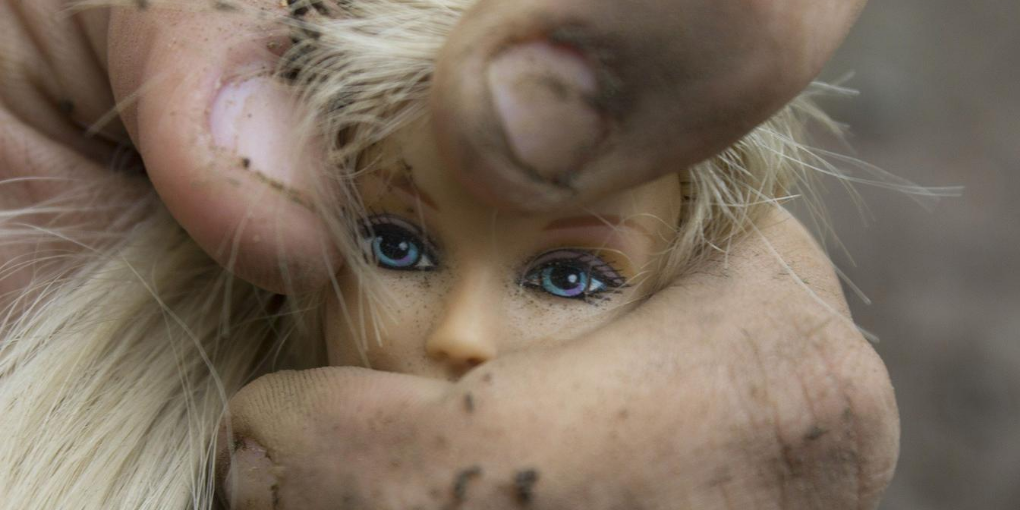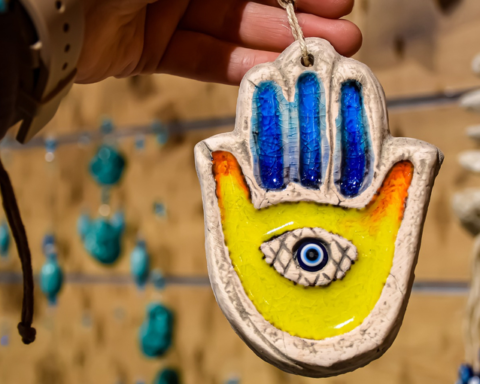I was shocked when I heard the news. Thirty Israelis were said to have waited in line. Israelis aren’t known for waiting in line. Yet this line was different. In this line, allegedly stood some 30 men and boys waiting their turn to rape a 16-year old girl. She was visiting an Eilat hotel with friends when she landed in a hotel room, intoxicated, and became the object of attention and penetration for a somewhat “socially distanced” gang rape in Israel.
The line shocked me. The rape didn’t. Rape is rampant in our society today, and violence against women is a concerningly accepted norm. The numbers speak for themselves. A 2013 report by the Association of Rape Crisis Centers in Israel states that 1 in 3 females are sexually assaulted, and 1 in 7 females are raped. (In fact, NGO Women’s March in Israel tallies the figures at 1 in 5.) Women report 85% of all assault cases, 95% of which men are the accused. Disturbingly, 90% of reports go uninvestigated, and 9 out of 10 rapists go unpunished, largely due to lack of evidence.

Since starting to keep track after that 2013 report, the ARCCI receives an average of 250 phone calls per year reporting gang rape. Over 60% of those are reported by minors between the ages of 12 to 18. In 2018, it received 192 calls. The police only received 19 complaints, which displays the minimal grip that law enforcement has on sexual crime. Many women choose not to report based on the backlash they commonly receive.
Blaming the Victim or the Criminal?
A lack of evidence doesn’t seem to be an obstacle in the Eilat incident. Israeli media reports that police have obtained text messages and video to support the victim’s case, and are working to identify the alleged perpetrators. So far, 12 men have been taken into custody. The sheer disgust of the initial narrative has sparked massive public protest and outcry across the country, yet there are still those lashing out at the protestors, saying they are raising their voices too soon – and here, highlights a troubling issue.
Even in a case where a rape victim is “lucky” enough to have hard evidence, the public turns towards doubt of the victim’s claim, quickly flowing into the prehistoric trend of blaming the victim and questioning her role in the crime committed against her. What was she wearing? How much was she drinking? Had she been sexting? How sexually active was she? These kinds of questions seem to naturally tailgate any kind of public rape accusation. The outdated suggestion that a person “had it coming” or “asked for it” has not yet been ironed out of the modern-day digestion of the act of rape.
What if instead of turning on the rape victim, we questioned the perpetrators – in this case, boys as young as 17 and men as old as 30 who seemingly don’t grasp that violating the body and soul of a young girl, is unacceptable. Does he understand that rape is a crime? Did he believe this was a good idea? Does he feel emotionally and mentally healthy? Does he believe the actions he took were moral and right?
The Root of Rape Culture
While rapists are solely to blame for their acts of violence against women, there is a much deeper problem embedded in our social consciousness, which fails to target the root of rape culture. The lack of education of our men and boys.
Still, in the 21st century, men are operating with the same psyche that governs social norms that we have far outgrown. The notion of man’s primal birthright is to conquer – whether a woman, a job, or a ball game – and it has not yet been stamped out. In educated civilizations, many men are raised with a “masculine” mindset, built on the qualities of dominance, power, competition, and conquest.
From around age 4, we hear boys told not to cry, shamed for their sensitivity, repressing their intrinsic sense of emotion. In their teen years, many boys learn that sex is the only way to gain respect from friends, solidifying social status as a numbers game. As they grow older, many boys receive their sexual education through porn, glorifying the objectification and disrespect of women’s bodies. Today, movies and media continuously promote and validate these ideas, overtly sending the message to men, and women, that these stereotypical qualities of “masculinity,” are desirable.
While an encouraging amount of men are choosing to develop their emotional intelligence and access a more balanced sense of self, others remain trapped in their outdated belief systems, unable to break free from this faulty and gendered conditioning. Why? Because they don’t have to change. Nothing is forcing the upgrade. Our society perpetuates gender stereotypes, and therefore sets our men up to fail when it comes to keeping our women safe.
A Broken Belief System
Many men still deny that rape culture exists. Many men still believe that women are inferior, feeling entitled to abuse, control, and exploit a woman’s body. In 2019, Pornhub reports 42 billion visits, which is 115 million visits per day. 90% of their users are men. Many men seek child and teen porn, and violent sex in an increasingly disturbing amount. The internet is a sex trafficking hub with no authority working to bring down legally listed sites. Killing prostitutes in video games is worthy of reward. Murdering wives, sisters, and daughters is considered “honor killing” in some cultures. Female genital mutilation is prevalent as a tradition in over 30 countries. In Israel alone, domestic violence has increased 40% between March and May of 2020, with 88% of sexual assaults reported to be by men known to the victim, husbands, family members, and colleagues.
So, when men commit sexual crimes, can we as a society really be shocked? While awareness is slowly progressing, the above trends must be acknowledged and amended in order to remedy the root cause of rape culture.
The questions we need to be asking ourselves are, what needs to change in our society for men to break away from their old beliefs? What role do men who do respect women have to play in the fight against sexual violence against women? Should the “woke” men among us be the ones to stand up and take a greater leadership role in shifting the cultural narrative? What responsibility does the government have to apply and enforce policy? What role do women play in crafting this shift in the collective psyche? How can we raise our sons to ensure we are writing a different future for all of our children?
The conversation needs to change now. As an educated and advanced society, we must not solely focus on the need to protect our girls. We must take clear and immediate action to educate our boys and men that violence, especially against women, is wrong. We must collectively release the reins of the “masculine” mindset, and no longer permit “primal instinct” to outweigh basic humanity.
Despite the dire need for deep transformation, I remain hopeful, that one day soon, boys and men will stand in line to become part of the solution.








